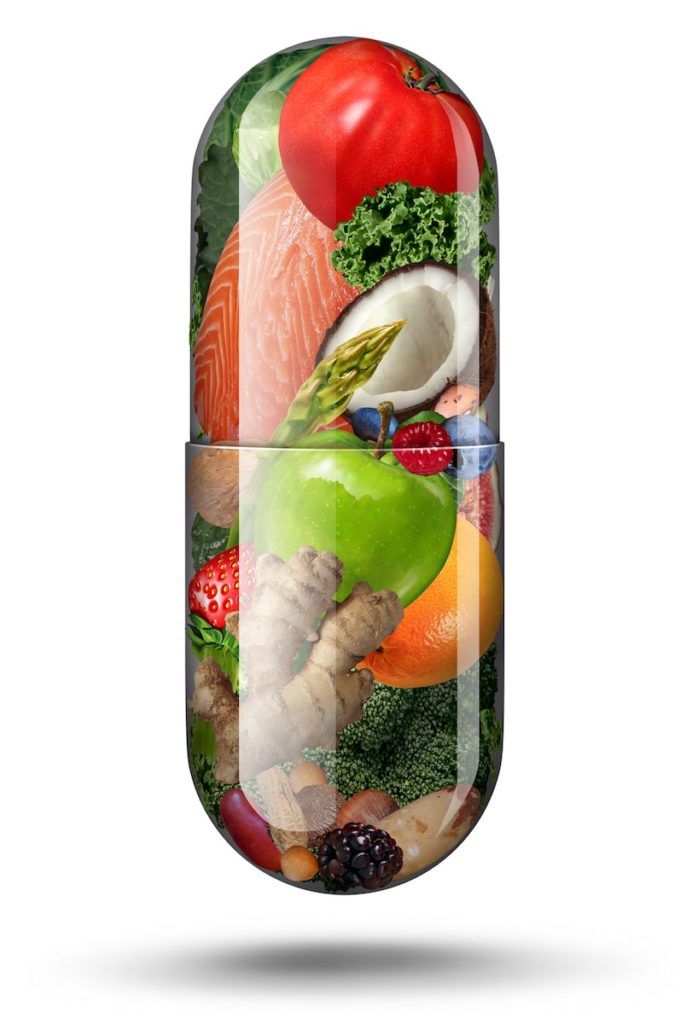Food, Not Pills
Eat. Real. Food. It's that simple

Count this as more proof that we shouldn’t rely on pills and powders to make up for dietary shortfalls. Some of the most popular supplements don’t seem to provide any measurable heart health benefits, according to a study in the Journal of the American College of Cardiology. After reviewing studies published between 2012 and 2017, Canadian researchers found that multivitamins, vitamin D, calcium and vitamin C (the most common supplements) showed no advantage in the prevention of cardiovascular disease, heart attack, stroke or premature death—and no increased risk of any of these. A slight benefit was attributed to folic acid, a B vitamin, and the study also found that niacin and antioxidant supplements may slightly raise the risk of early death.
Authors of the study say the results show that consuming a balanced, healthy diet is the best way to get your fill of essential vitamins and minerals. To date, supplements just don’t seem to capture these nutrients and antioxidants the same way food does.
Matthew Kadey, MS, RD
Matthew Kadey, MS, RD, is a James Beard Award–winning food journalist, dietitian and author of the cookbook Rocket Fuel: Power-Packed Food for Sport + Adventure (VeloPress 2016). He has written for dozens of magazines, including Runner’s World, Men’s Health, Shape, Men’s Fitness and Muscle and Fitness.





